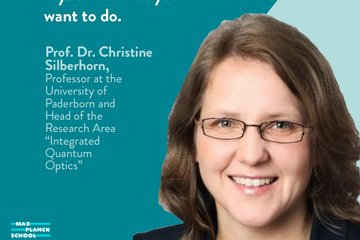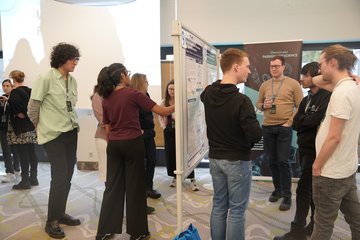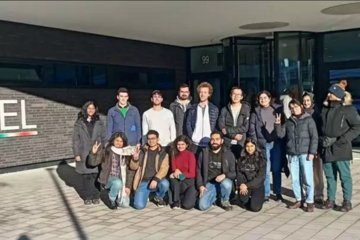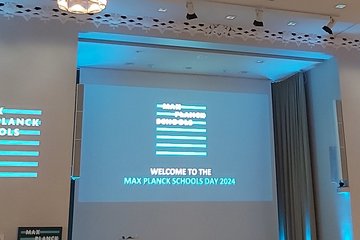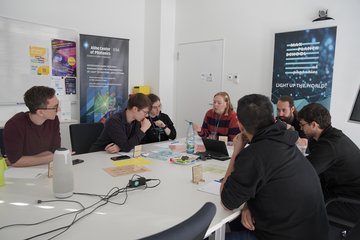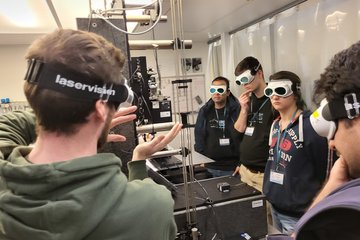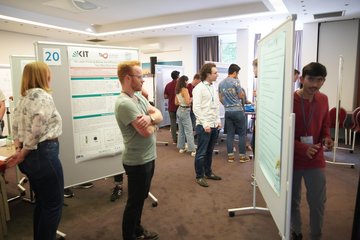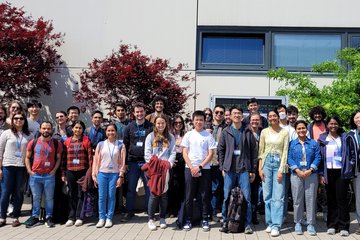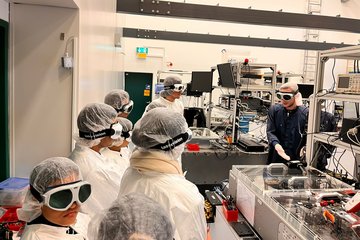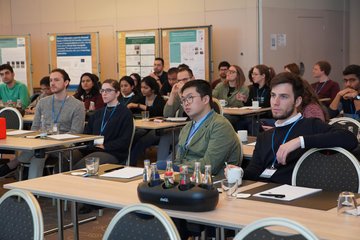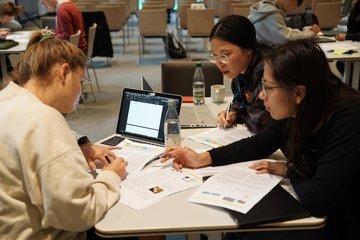MPSP Lecture Series 2024
Exploring the Frontiers of Light - Join the free lectures of our Fellows!
The Max Planck School of Photonics continues to uphold its commitment to academic excellence and innovation in science. With this year Lecture Series seeks once again to explore the complex area of photonics and the remarkable potential of light in a variety of fields. Leading experts from our group of MPSP Fellows will present findings and news from their studies and research.
Join us online from mid-September to the end of November 2024 (almost) every week at 5 p.m. CET (3 p.m. UTC | 11 a.m. EDT | 8.30 p.m. IST) for 45 minutes with 15 extra minutes to engage in discussions, share ideas, and explore your potential with our Fellows.
The lecture series is completely free and takes place virtually via Zoom.
Upcoming Lectures
Nanophotonics for High-Precision Optical Metrology and Quantum Technologies – From Fundamentals of Light-Matter Interaction to Integrated SystemsNanophotonics plays a critical role in realizing compact photonic systems for light routing and conditioning with ever more complex optical functions. For quantum technologies, this opens new horizons for robust and compact quantum experiments. Nanophotonics also promises to elevate the precision of experiments in high-precision optical metrology to an unprecedented level, e.g., optical atomic clocks and gravitational wave detectors - the most precise experiments ever developed by humankind. This lecture gives an overview of the development and possibilities of nanophotonic devices for applications in precision optical experiments and quantum technologies with trapped atoms and ions. The relevant physical phenomena of light-matter interaction in these systems and the role of material properties are explained.
more
Hello Rabi, My Old friend In this lecture Dr. Jöns will cover a nearly decade-long hunt to measure a peculiar signature of Rabi Oscillations for solid-state systems. Under coherent control quantum two-level systems undergo Rabi Rotations: depending on the used excitation pulse area the occupied state of a quantum two-level system is oscillating. The oscillation is damped due to pure-dephasing, cased in the solid-state by e.g. phonon coupling. But what happens if the coupling strength to phonons also depends on the pulse area? Join the lecture to find out.
more
Tunable Fabry-Perot Microcavities for Quantum TechnologiesMicrocavities are a powerful tool to enhance light-matter interactions and enable efficient spin-photon interfaces. Prof. Hunger will introduce the basics and the technology of open-access microcavities and report experiments with condensed-matter quantum emitters.
more
Photonic Time Crystals: Theory and ApplicationsPhotonic time crystals constitute a novel class of photonic materials characterized by a periodic temporal modulation of their electromagnetic properties. These materials, which serve as temporal analogs to traditional photonic crystals, exhibit momentum bandgaps, leading to unique phenomena such as non-conserved energy and eigenmodes with exponentially growing amplitudes. The presentation will cover fundamental electromagnetic principles, the broad range of applications, and the various material platforms for creating photonic time crystals.
more
Manipulating Life at the Submicron Scale using LightLight offers the advantage of studying life and biological processes at microscopic resolution. Optical microscopes haveaenabled us to discover, study, and observe life at the submicrometer level. In this lecture, Prof. Heisterkamp wants to introduce you to the possibility of not only observing but also influencing life at this level using tightly focused laser light. For example, using ultrashort laser pulses, precise nanosurgery of living cells can be achieved, allowing us to ablate parts of a living cell and study repair mechanisms at a single-cell level. This can be seen, for instance, in heart muscle cells, by looking at the recovery of single muscle elements. For this, the laser parameters and the nonlinear interaction of light have to be carefully adjusted and matched to the specific application. By harnessing optically switchable molecules and genetic cloning technologies, in so-called optogenetics, this subcellular manipulation can even be applied to control basic cellular functions, such as neuronal firing or muscle contraction. These mechanisms are currently being investigated to enable a new generation of neuronal interfaces, for example, for blind or deaf people, as well as for overcoming severe heart muscle problems using cardiac pacemakers.
more
Guided optoacoustic for photonic machine learning and quantum technologiesPhotonics has the potential to advance modern quantum technologies and high-speed applications such as communications and the processing of large amounts of data. However, to replace or improve the well-established systems with photonic solutions, there is still a way to go. A promising approach to manipulate light all-optically is to use the link of optical waves with acoustic vibrations. Our research experimentally investigates how traveling sound waves can be used to process states of light in the classical and quantum regime. With the help of acoustic waves, we implement several building blocks and operators for photonic machine learning, such as an optoacoustic recurrent operator and a photonic activation function for all-optical neural networks. We demonstrate non-reciprocal processing of polarization and orbital angular momentum states and show how photon-phonon entanglement and phonon cooling via stimulated Brillouin scattering is implemented in continuum systems like waveguides and optical fibers.
more
Flamingo: Development, applications, and dissemination of light sheet microscopy technologyThe overall goal of the Huisken Lab is to systematically study developmental processes in living organisms using custom, non-invasive biomedical imaging techniques. Over the years, we have developed and perfected imaging tools that offer unique possibilities for analyzing vertebrate development. Our primary tool is advanced, customized light sheet microscopy (LSFM, SPIM), ideal for imaging biological samples across scales, from small, living organisms to large, fixed, and cleared tissues. Besides the low photo-toxicity and fast acquisition, LSFM offers the advantage of high scalability and customizability: the experimental setup can be optimized for the given sample, which is often crucial to a successful experiment. We have now developed a modular and portable light sheet microscope framework (Flamingo), opening many new opportunities for collaborations, fieldwork in remote areas, teaching, training, and sharing with other scientists. On the one hand, Flamingo makes light sheet microscopy more accessible to biologists; on the other hand, we benefit by learning about exciting new imaging projects, getting access to new specimens, and integrating user feedback in the next iteration of these instruments. Flamingos can also be remotely controlled, offering the option for support and collaborative experiments from afar.
more








